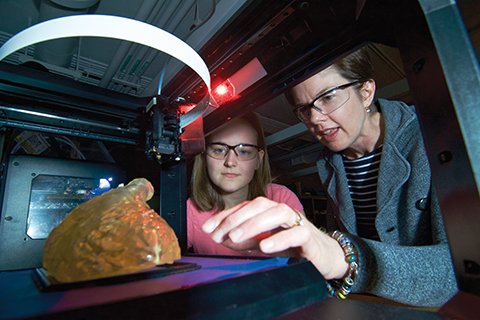Biomedical engineering
Biomedical engineers help to solve medical and scientific health problems. They are involved in medical design fabrication and testing, prosthesis fabrication, ergonomics, monitoring physiological function, developing home health care technology, biomedical informatics, and functional imaging and tomography. They also conduct research in biomaterials and biocompatibility, artificial tissue and organ fabrication, cell- and biomolecule-based sensors and therapeutics, gene therapy, and biomedical microsystems.
Careers
- Biomedical engineer
- Research and development engineer
- Quality control/assurance engineer
- Medical device designer
- Manufacturing engineer
- Prosthesis designer
- Medical diagnostics
- Rehabilitation engineer
- Physiological systems engineer
What will I study?
This field is constantly changing with advances in biology, medicine, and technology. Our program gives you a broad, deep foundation so you can adapt to new opportunities and applications throughout your career. The curriculum features:
- Freshman seminars led by professors and industry professionals
- Biology and physiology courses as well as math, physics, and chemistry
- Core courses in biomedical engineering with integrated labs
- Custom elective tracks, allowing you to tailor studies based on career interests
- A senior design sequence advised by a practicing biomedical engineer
The Bachelor of Biomedical Engineering is accredited by the Engineering Accreditation Commission of ABET.

